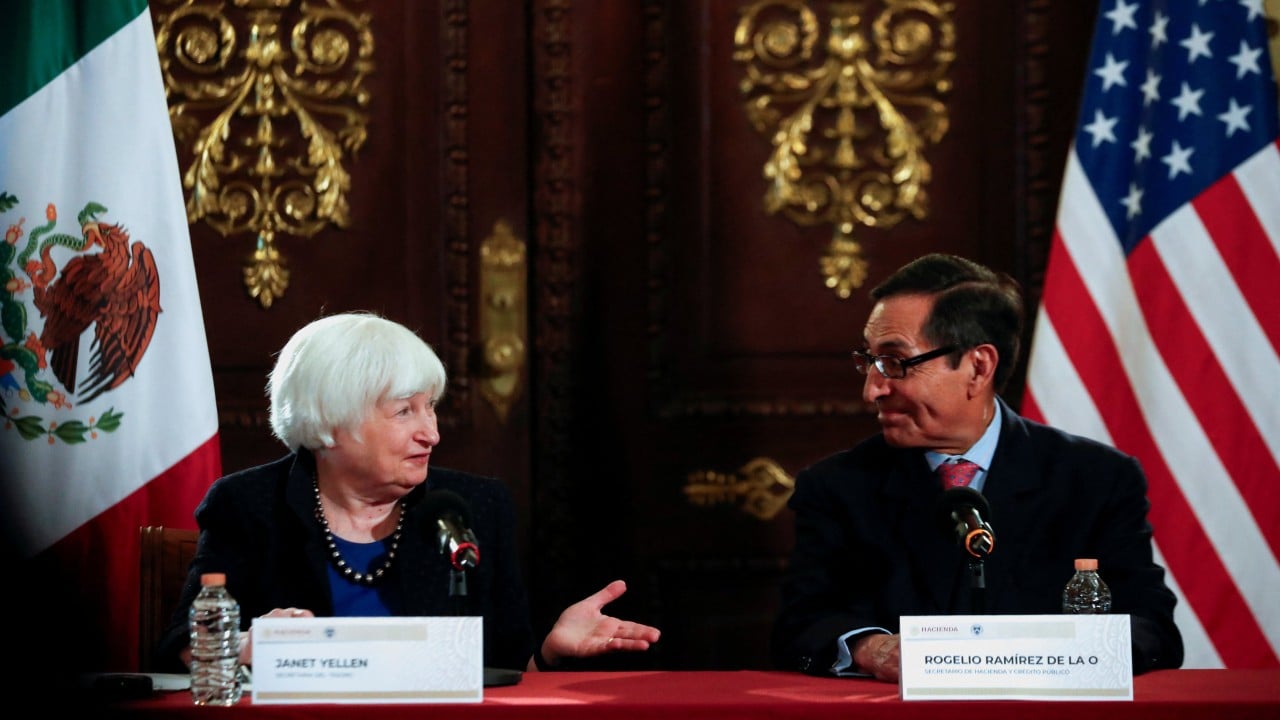Sino-Mexican trade is not reciprocal and the North American country must review China’s practices, its finance minister said on Saturday, echoing American concerns about industrial overcapacity.
Mexico buys “US$119 billion a year from China and we sell US$11 billion”, according to Rogelio Ramirez de la O, who accused Beijing of boosting its share of global exports “at the expense of North America”.
Washington had “facilitated China’s entry into the World Trade Organization, opening the door for [Beijing] to increase its production destined for North America – not only for the US but also for Mexico”, he continued.
“China has increased its global exports from 3.8 per cent to 14 per cent in just 22 years, and this increase has largely come at North America’s expense,” Ramirez de la O said.
Meanwhile, the region’s share of global exports “has fallen from 19 per cent in 2000 to 13 per cent in 2022”, he added.
Ramirez de la O offered the critical observations during an event in the Mexican city of San Luis Potosi attended by President Andres Manuel Lopez Obrador, President-elect Claudia Sheinbaum and incoming economy minister Marcelo Ebrard.
Over the period from 2000 to 2022, China’s share of global GDP surged by more than 15 per cent while North American countries experienced a decline, Ramirez de la O said.
“It is only logical to expect that both Americans and Mexicans demand our fair share of this global demand.”
Ramirez de la O believed the government had to make Mexicans aware that “it is necessary to produce more than we consume because we are heavily dependent on the Chinese for basic products for our households”.
This is why “we are now considering making changes to investment policy and paying more attention to foreign investment, focusing on production policy”, he said.
And despite the USMCA – a 2020 free-trade pact between the United States, Mexico and Canada – the region “remains very dependent on imports from China,” Ramirez de la O warned.
Canada depends on China for 13.5 per cent of all its consumption, he said, describing US dependence as even higher at 16.5 per cent and Mexico’s at 19.6 per cent.
In contrast, Ramírez de la O noted, China was only 8.8 per cent dependent on imports from North America.

Ebrard, a former Mexican foreign minister whom Sheinbaum has chosen to handle the country’s economy portfolio, reiterated Ramirez de la O’s message.
He hailed the fact that the US is Mexico’s main trading partner and said he planned to continue integrating the two economies when Sheinbaum takes office in October.
Tensions between Beijing and Washington have recently sharpened American scrutiny of Mexico’s relationship with China.
In December, US Treasury Secretary Janet Yellen visited Mexico to discuss strengthening financial cooperation between the two countries and defended a mechanism to monitor foreign investments in Mexican territory.
The goal, Biden administration officials said, was to prevent Chinese companies from skirting tariffs and sanctions by taking advantage of USMCA rules.
Former American president and 2024 Republican nominee Donald Trump has also been vocal on the issue.
During a speech last week at the Republican Party’s national convention in Milwaukee, Wisconsin, he complained about large Chinese factories being built on the US-Mexico border.
“They’re being built by China to make cars and to sell them into our country, no tax, no anything,” said Trump. “We have long been taken advantage of by other countries. And think of it, oftentimes these other countries are considered so-called allies. They’ve taken advantage of us for years.”


